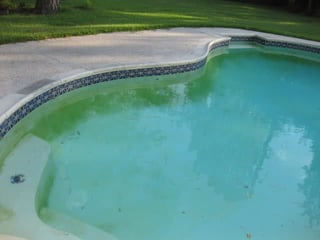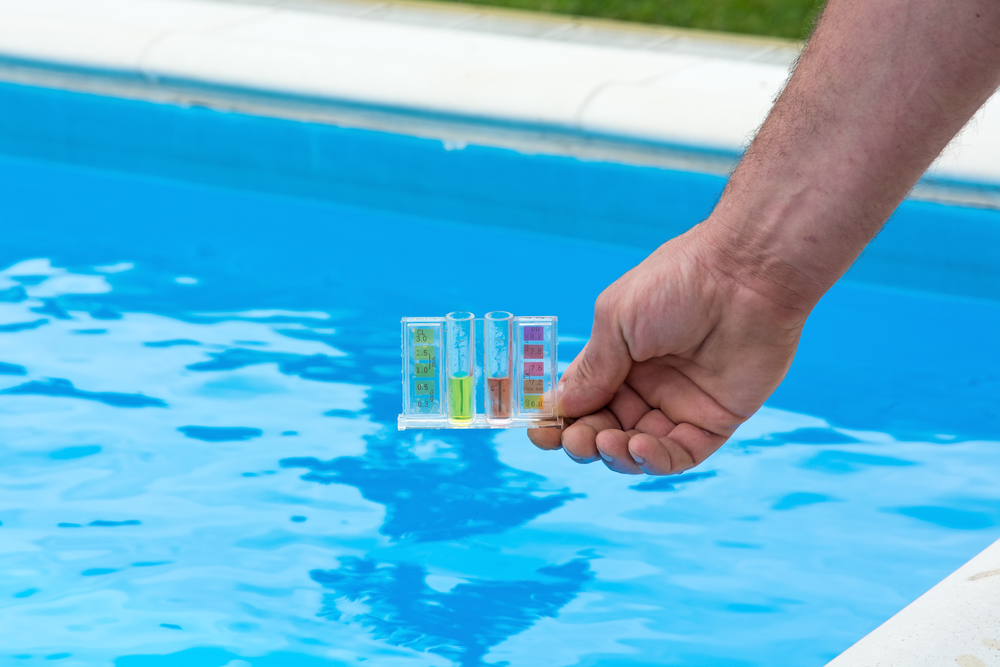Algae Growing In Pool With Chlorine

You are looking to achieve 10 ppm of chlorine.
Algae growing in pool with chlorine. The main reason why algae grows in your pool is because it hasn t been treated with a sanitising chemical such as chlorine or hasn t been treated enough and your ph is probably a little high. The ammonia based algaecide is less expensive and will be less likely to stain your pool than the metallic copper and silver based algaecides. Although algae does not harm swimmers no one wants to go swimming in a pool that is full of algae. The go to pool cleanser.
This usually works within 1 3 days but can take up to a week if pool conditions are poor. Although this is definitely a major cause of algae it is not the single contributing factor. First shock your pool and keep your water circulating 24 hours a day if possible. Use chlorine as your go to algae killer.
When your pool water is green or contains visible algae clumps your pool does not have enough chlorine. Algae eats high ph water for breakfast lunch and dinner. The thing about phosphates is that it is food for algae but it does not create algae. It cleanses water of microorganisms bacteria and other infectants but can t kill.
It consumes chlorine in the water that should be used on other contaminants creating a higher chlorine demand in the water. Mustard algae can resist standard levels of chlorine and hide on pool toys filters and even your swimming costume waiting to re infect your pool. Follow up with an algaecide designed for your particular algae problem most common are black green and mustard algae. Shocking the pool with a large dose of chlorine is the most effective way to kill the existing algae and bring your pool back to sanitary conditions.
Your pool s chlorine level should stay between 2 0 and 4 0 ppm parts per million to keep bacteria and algae to a minimum. Algae is a one celled plant that can grow in your pool if conditions are favorable and it s a major concern for swimming pool owners. After shocking you will need to brush and vacuum the entire pool. If algae have already taken hold in your pool there are some basic steps to follow.
Using algaecide regularly helps keep your filter from becoming clogged with plant matter and debris keeping your pool circulation optimal. Algae spores will obviously still enter your pool from time to time but a healthy level of chlorine will kill them off before they have a chance to bloom. The most common reason for algae growth in pools is that it has a low chlorine or its alternative in the pool. Check chlorine and add more if it s.
It s in every pool regime and the government uses it to clean our drinking water. Algae itself does not harm swimmers but if a pool has algae it may be a haven for pathogens like e coli bacteria.














































